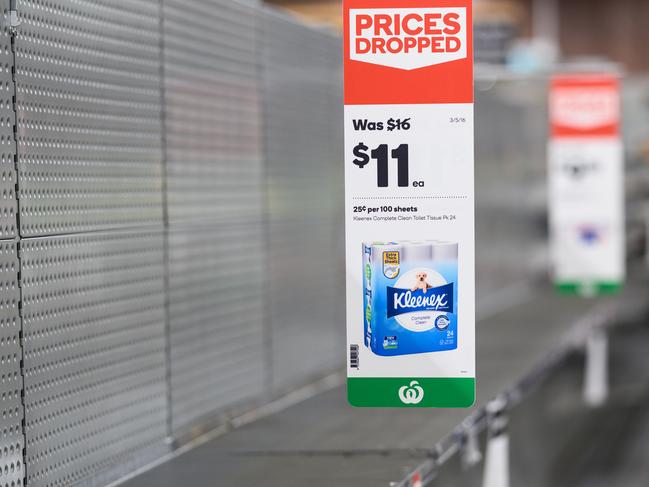About one in five Australians have less than $500 in savings
Panic has swept the Australian and international economies amid the coronavirus pandemic and for many they have no wriggle room if they are hit financially.
Exclusive: Cash-strapped Australians are leaving themselves with less than $500 in savings and have little financial cushioning if something goes wrong.
Panic has swept the Australian and international economies amid the coronavirus pandemic and for many they have no wriggle room if they are hit financially.
New research from St George Bank found many people have little cash tucked away –
it quizzed 1500 Australians and showed 22 per cent of Australians have less than $500 cash savings.
It also showed about one in two Australians have less than $3000 in savings.
St George Bank’s general manager Ross Miller said when the unexpected happens, “a well-planned emergency fund can be just the safety net families need in a crisis”.
“Working out what expenses you’d need to meet and then making regular small contributions to an emergency fund to help cover these could make all the difference when the unexpected happens,” he said.
“Because you’ll need to be able to use your emergency fund at short notice, consider an
account that lets you access your money easily when you need to.”
The research also showed one in five households admitted they used credit to get by.

The Federal Government last week rolled out a $17.6 billion stimulus package as the economy continued to take a huge hit from the bushfires, drought and now the coronavirus pandemic.
The Reserve Bank of Australia cut the cash rate to a record-low of 0.5 per cent in March bringing both home loan and savings rates down to rock-bottom levels.
On Friday the Australian Securities Exchange’s RateTracker indicators which monitors market expectations predicted a 100 per cent change of another cash rate fall in April.
Financial adviser Scott Haywood said there were many issues festering now that impacted Australians’ hip pockets.
“The problem is the cost of living has gone up, there’s been no wage increases and people’s hours may be changing as a result of the coronavirus and cash reserves have dried up,” he said.

MORE NEWS
Aussies’ surprising $190 safeguard against coronavirus
Future-proof your finances amid coronavirus pandemic
Woolies put further limits on toilet paper
Pregnant Aussie in Italy lockdown reveals fears
“People have overstocked and spent more money on things than they would have liked to such as paracetamol, nappies and toilet paper.”
He said Australians should ideally have the equivalent of at least three months’ salary stashed away in the case of an emergency.
HSBC chief economist Paul Bloxham said Australians continued to carry too much household debt.
“The main thing we need to try and do is keep people in jobs because a rising unemployment rate would present a challenge for Australia because they are carrying too much household debt around,” he said.
Australia has the second-highest household debt levels in the world behind Switzerland.
The nation’s unemployment rate rose from 5.1 per cent to 5.3 per cent in February.

